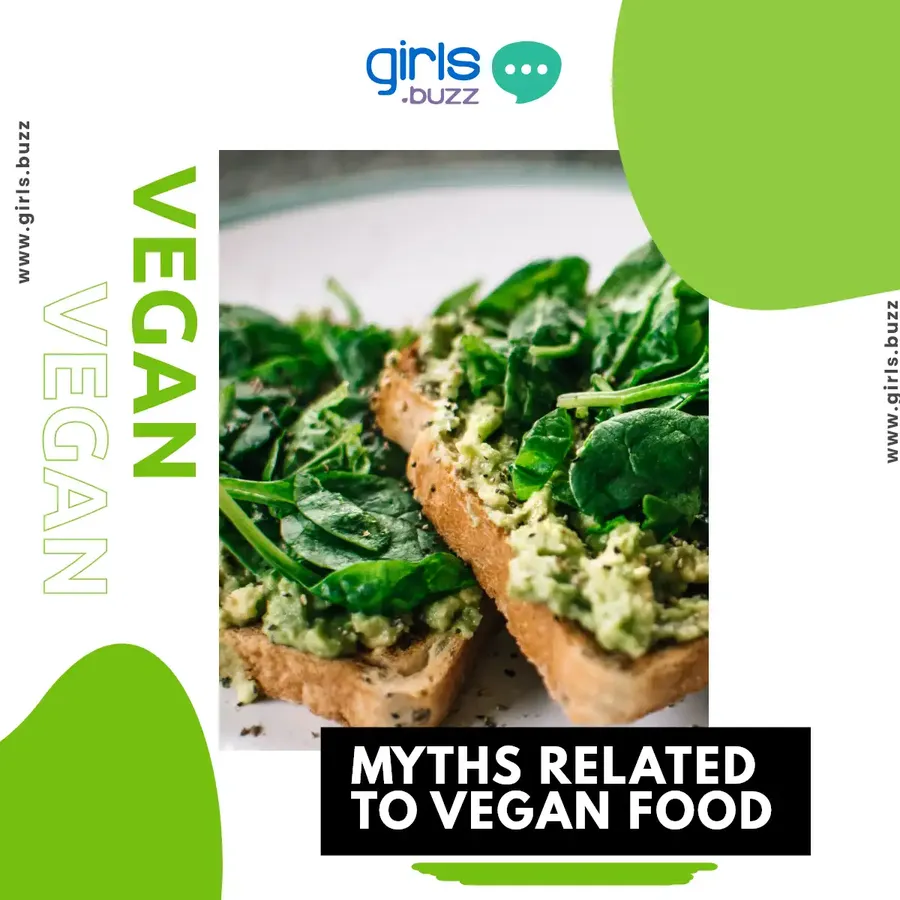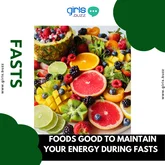Myths Associated with Vegan Food
5 minuteRead

By Samyati Mohanty
Veganism in its purest form?
Veganism is a way of life dedicated to ending all forms of animal exploitation and cruelty, whether for food, clothing, or other reasons. As a result, the vegan food diet forbids the consumption of any animal products, including meat, eggs, and dairy.
Is it possible to be completely vegan?
It is feasible to be entirely vegan if being vegan implies attempting to cause the least amount of harm possible. Unfortunately, we will unwittingly inflict harm on other living beings as long as we live. However, we may make a concerted effort to minimize the harm to the best of our abilities.
Ugh! Are you tangled by all of these questions in your head?
Let's make things simple for you.
If you're a vegan or have recently become one, you're probably inundated with misconceptions about veganism from all directions - including your own. If you're not vegan, you're sure to have certain fears that grow fantastical dimensions when surrounded by more supposition and ignorance. Some of these worries and assumptions are as fantastical as our grandparents' seed story: "If you swallow a seed, a tree will grow inside you." It's never a bad idea to do some research before answering queries about veganism. People, if we can Google cat photos, we can Google veganism questions as well. But, to save you the hassle, we'll do it for you.
Here are a few of the most prevalent vegan food myths!
Vegetarianism and veganism are the same things!
This is the most widespread misconception we've encountered, particularly in India, where there is a sizable vegetarian population. Vegans don't eat meat, eggs, milk, or any other dairy product that comes from or contains animals. Vegetarians do not eat meat, however, they do consume large amounts of dairy products in most settings.
Vegan foods are deficient in protein!
People are frequently misled into believing that humans can only get protein from animal products. This is untrue. Soya, lentils, broccoli, seaweed, peas, spinach, beans, brown rice, whole-wheat bread and pasta, quinoa, cashews, almonds, pistachios, and walnuts are just a few of the plant-based protein sources available. So you're consuming the same plant-based protein as before!
Honey is a vegan food product.
"Because a bee naturally produces honey, isn't honey consumption vegan?"
Not at all. Honey bees produce honey for their own sustenance, similar to how a human mother produces milk for her own child. Honey also serves as the entire beehive's winter store. Bee population declines as a result of industrialization and honey consumption. When bees stop pollinating, it has a direct impact on the growth of plants and vegetable harvests, as well as the ecosystem as a whole.
4. Soya milk is the sole non-animal milk option.
Other than soy, there are dozens of other plant-based milk options, though soy may be the most popular. Other alternatives for animal milk substitutes include coconut milk, almond milk, cashew milk, hazelnut milk, hemp milk, and rice milk.
Soya protein causes estrogen levels to rise.
In men, soya has no effect on testosterone levels. Soya includes isoflavones, which bind to estrogen receptors in the body but are not identical to estrogen. This is a typical misunderstanding. Furthermore, phytoestrogen is a type of plant-based estrogen that differs from animal-based estrogen (which is found in significant amounts in milk) and is extremely helpful to female health. It is particularly well-known for its usage in diets to prevent breast cancer.
Veganism is associated with malnutrition.
In fact, it's the polar opposite. A well-balanced vegan food diet has been shown to strengthen the immune system, improve heart function, increase endurance, and promote healthier skin.
Being a vegan implies living a healthy lifestyle.
Okay, I get that this is perplexing, especially in light of point number 6. However, the point we're attempting to convey is that being a vegan does not ensure excellent health. You must work hard to achieve it, just like anything else in life. You can eat a completely vegan diet, but if you constantly consume oil-based goods and don't exercise, no amount of dairy-free living can help you live a healthy life. It's critical to consume a well-balanced diet, regardless of what you eat.
Veganism is limited to food.
Veganism is, without a doubt, closely linked to food and consumption, but it does not stop there. Veganism is a lifestyle, by choice. It's about refusing to participate in anything that causes cruelty or harms the environment. Vegans often shun things that have been tested on animals or include traces of animal origin. They also attempt to utilize natural and biodegradable goods whenever feasible to avoid littering the environment.
Being a vegan has a negative impact on relationships with family and friends.
For many people, being a vegan is a significant (and essential) lifestyle change. It takes time for the immediate surroundings to adjust to the shift, just as it does with any other change in life. Because they may not be informed of your decision, family members may object. This does not imply that your relationship with them will suffer as a result. They'll only comprehend if you provide them with reasonable justifications. It's critical to stick to your convictions. Who will knowingly oppose to you living a nonviolent lifestyle, after all?
Being vegan is impossible since animal products are found in everything.
This argument is akin to claiming that because guns are ubiquitous, it is difficult to avoid shooting people. It all boils down to personal preference. Although the dairy business has made an alarming inroads into the food and beverage sector, there are plenty of alternatives for people who prefer not to consume animal-based products. Organic food is becoming more popular, and plant-based nourishment is readily available in both urban and rural locations. "Help will always be available at Hogwarts to those who ask for it," Albus Dumbledore said.
Vegans only care about animals, not people.
This isn't accurate at all. Veganism has a similar influence on humans as it does on animals. Veganism naturally makes our human world a better living place because it has a direct impact on the environment and the overall quality of life. A life lived without cruelty will always leave positive waves in its wake.
Veganism is costly.
Do you think vegetables are more expensive than steak when you go to the supermarket? Is vegetarian spaghetti more expensive than bacon strips in a restaurant?
You've already figured it out. Veganism does not cost more than a meat-eating diet. Organic foods and cosmetics will, of course, be more expensive than commercial animal-based products on the market, but this is due to the demand-supply ratio. When there is a greater demand for organic products, the price will inevitably decrease. More significantly, your monthly budget will balance out once you realize you won't be buying nearly as many animal goods.
Write, Record and Answer! Consume Unlimited Content! All you need to do is sign in and its absolutely free!
Continue with one click!!By signing up, you agree to our Terms and Conditions and Privacy Policy.









